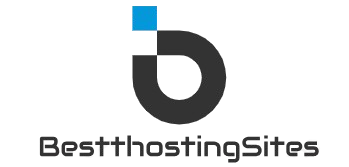Unlocking the Power of Monitoring Tools to Enhance Your Hosting Performance
Have you ever wondered how websites are able to deliver lightning-fast load times, seamless user experiences, and unparalleled reliability? Behind the scenes, sophisticated monitoring tools play a critical role in ensuring optimal hosting performance. From tracking server health to identifying potential bottlenecks, these tools provide invaluable insights that empower website owners to make data-driven decisions and optimize their digital presence.
In this comprehensive guide, we will delve deep into the world of monitoring tools and explore how they can revolutionize your hosting performance. Whether you are a seasoned IT professional or a novice website owner, understanding the power of monitoring tools is essential for staying ahead in today’s competitive online landscape.
The Role of Monitoring Tools in Hosting Performance

Monitoring tools serve as the eyes and ears of your hosting infrastructure, constantly scanning for signs of trouble and alerting you to potential issues before they escalate. By monitoring key performance indicators (KPIs) such as server uptime, response times, and resource utilization, these tools enable you to proactively address issues and ensure optimal performance for your website visitors.
One of the primary benefits of monitoring tools is their ability to provide real-time visibility into your hosting environment. With a comprehensive dashboard that displays critical metrics at a glance, you can quickly identify trends, anomalies, and performance bottlenecks that may be impacting your website’s speed and reliability.
Types of Monitoring Tools

There are several types of monitoring tools available, each specializing in different aspects of hosting performance. Let’s explore some of the most common categories:
1. Server Monitoring Tools
Server monitoring tools focus on tracking the health and performance of your server hardware and software. These tools monitor CPU usage, memory consumption, disk space, network traffic, and other vital metrics to ensure that your server remains in optimal condition.
Popular server monitoring tools include Nagios, Zabbix, and SolarWinds Server & Application Monitor. These tools offer comprehensive dashboards, customizable alerts, and detailed reports to help you keep a close eye on your server’s performance and troubleshoot any issues that arise.
2. Website Monitoring Tools
Website monitoring tools specialize in tracking the availability and performance of your website from various locations around the world. These tools simulate user interactions, such as loading web pages, submitting forms, and downloading files, to monitor response times and ensure that your website is accessible to visitors at all times.
Popular website monitoring tools include Pingdom, UptimeRobot, and Site24x7. These tools provide detailed reports on uptime, downtime, and performance metrics, enabling you to identify and address any issues that may be impacting the user experience on your website.
3. Application Performance Monitoring (APM) Tools
APM tools focus on monitoring the performance of your web applications, including databases, APIs, and third-party services. These tools track transaction times, error rates, and code-level performance metrics to help you identify bottlenecks and optimize the speed and efficiency of your applications.
Popular APM tools include New Relic, Datadog, and Dynatrace. These tools offer deep insights into your application’s performance, allowing you to pinpoint issues, optimize code, and deliver a seamless user experience to your visitors.
Benefits of Monitoring Tools for Hosting Performance

The benefits of using monitoring tools to enhance your hosting performance are manifold. Let’s explore some of the key advantages that these tools offer:
1. Proactive Issue Resolution
By monitoring critical metrics in real-time, you can proactively identify and resolve issues before they impact your website visitors. Whether it’s a spike in traffic, a server outage, or a slow-loading webpage, monitoring tools enable you to stay ahead of potential problems and maintain a seamless user experience.
2. Improved Reliability and Uptime
Monitoring tools help you ensure that your website remains available and responsive to visitors 24/7. By monitoring uptime, downtime, and response times, you can identify and address any issues that may be causing disruptions and minimize the impact on your website’s reliability.
3. Enhanced Performance Optimization
With detailed insights into your hosting environment, you can optimize performance by identifying and addressing bottlenecks, fine-tuning configurations, and implementing best practices. Monitoring tools empower you to make data-driven decisions that drive improvements in speed, efficiency, and overall performance.
4. Cost Savings and Efficiency
By preventing downtime, optimizing resources, and improving performance, monitoring tools can help you save money on unnecessary hardware upgrades, reduce operational costs, and maximize the efficiency of your hosting infrastructure. Investing in monitoring tools is a smart way to ensure that you are getting the most out of your hosting investment.
5. Enhanced Security and Compliance
Monitoring tools play a critical role in ensuring the security and compliance of your hosting environment. By monitoring for suspicious activity, unauthorized access attempts, and compliance violations, these tools help you protect your data, secure your applications, and maintain regulatory compliance.
Common Misconceptions about Monitoring Tools

Despite the numerous benefits of monitoring tools, there are some common misconceptions that can deter website owners from leveraging these powerful tools to enhance their hosting performance. Let’s debunk some of the myths surrounding monitoring tools:
1. Monitoring Tools are Only for Large Enterprises
While monitoring tools are often associated with large enterprises that have complex hosting environments, they are equally valuable for small and medium-sized businesses. Whether you are running a personal blog, an e-commerce site, or a corporate website, monitoring tools can help you optimize performance, improve reliability, and deliver a superior user experience to your visitors.
2. Monitoring Tools are Complex and Difficult to Use
While some monitoring tools may have a steeper learning curve, many modern solutions are designed with user-friendly interfaces, intuitive dashboards, and customizable alerts that make monitoring your hosting environment a breeze. With the right tools and guidance, website owners of all skill levels can harness the power of monitoring tools to enhance their hosting performance.
FAQs about Monitoring Tools for Hosting Performance
Q: How often should I monitor my hosting environment?
A: It is recommended to monitor your hosting environment continuously, 24/7, to ensure that you have real-time visibility into performance issues and can proactively address any issues that arise.
Q: What are the key performance indicators (KPIs) that I should monitor?
A: Some of the key KPIs to monitor include uptime, response times, server load, CPU usage, memory consumption, network traffic, and error rates. By tracking these metrics, you can gain a comprehensive understanding of your hosting performance and make informed decisions to optimize your website.
In Conclusion
Monitoring tools are indispensable assets for website owners looking to enhance their hosting performance, improve reliability, and deliver a superior user experience to their visitors. By leveraging the power of monitoring tools, you can proactively identify and address issues, optimize performance, and maximize the efficiency of your hosting environment.
Whether you are a small business owner, a web developer, or an IT professional, investing in monitoring tools is a smart way to stay ahead in today’s fast-paced digital landscape. By harnessing the insights provided by monitoring tools, you can unlock the full potential of your hosting infrastructure and take your website to new heights of performance and reliability.
Remember, when it comes to hosting performance, knowledge is power. Equip yourself with the right monitoring tools and watch your website soar to new heights of success.




